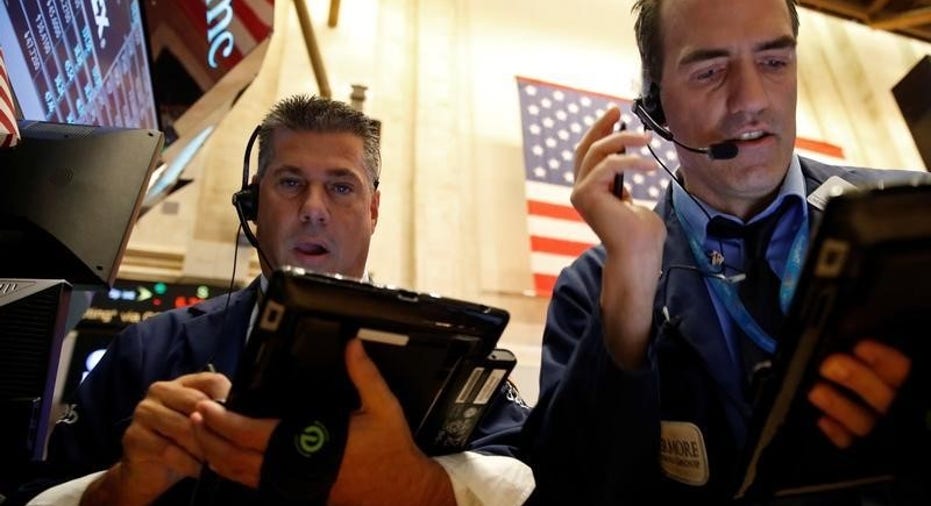Wall St Falls After Ho-Hum Jobs Data, Sterling 'Flash Crash'

U.S. stocks fell on Friday after a "flash crash" in sterling fueled Brexit worries and a weaker-than-expected September jobs report did not sway expectations for a Federal Reserve interest rate hike by year-end.
It was latest in two weeks of what some investors described as directionless trading, with uncertainty around a tight race for the White House weighing on sentiment ahead of the Nov. 8 vote.
Data showed U.S. employment growth unexpectedly slowed for a third month in September and the jobless rate rose. Nonfarm payrolls rose 156,000, down from a gain of 167,000 jobs in August, the Labor Department said.
"It's strong enough that you're not worried about the U.S. slipping into an economic slump," said Michael Jones, an investment officer at RiverFront Investment Group in Richmond, Virginia. "But it's not so strong that it precipitates immediate action from the Fed."
Fed Vice Chairman Stanley Fischer said the jobs report was close to a "Goldilocks" number, adding that the U.S. economy has been remarkable in reducing unemployment.
Worries on Wall Street about the potential fallout from Britain's planned exit from the European Union returned after a brief 10 percent dive in the pound in what traders called a "flash crash" that knocked the British currency to a 31-year low.
"Brexit so far has been a non-event, but they also have not started to negotiate with the EU. How is that eventually going to look?," said Warren West, principal at Greentree Brokerage Services in Philadelphia.
At 1:04 pm ET, the Dow Jones industrial average was down 0.51 percent at 18,175.81 points and the S&P 500 had lost 0.62 percent to 2,147.37.
The Nasdaq Composite dropped 0.66 percent to 5,272.09.
Ten of the 11 major S&P 500 indexes were lower, with materials falling 2.09 percent and industrials down 1.56 1.11 percent.
Utilities were the only gaining S&P index.
Honeywell's 8.3 percent drop weighed on industrials, after the aero parts supplier lowered the upper end of its 2016 sales and profit forecast range. The stock was also the biggest drag on the S&P 500.
Chemical company PPG dropped 9.1 percent after forecasting a third-quarter loss.
Tyson Foods plunged 9.08 percent after Pivotal Capital downgraded its stock to "sell" from "buy."
Declining issues outnumbered advancing ones on the NYSE by a 2.97-to-1 ratio; on Nasdaq, a 2.91-to-1 ratio favored decliners.
The S&P 500 posted 4 new 52-week highs and 4 new lows; the Nasdaq Composite recorded 42 new highs and 34 new lows. (By Noel Randewich; Additional reporting by Yashaswini Swamynathan in Bengaluru; Editing by Meredith Mazzilli)



















